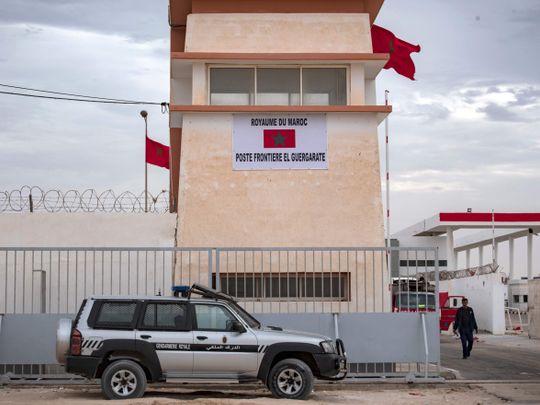
Cairo: As 2020 was drawing to a close, US President Donald Trump proclaimed recognition of Morocco’s sovereignty over Western Sahara, a major diplomatic triumph for Rabat in a decades-long dispute.
“Morocco’s serious, credible, and realistic autonomy proposal is the ONLY basis for a just and lasting solution for enduring peace and prosperity!” Trump tweeted.
The December 10 announcement was part of a US-brokered peace deal between Morocco and Israel.
While the Rabat-Tel Aviv agreement to establish diplomatic ties came as no surprise for many, Trump’s support for Morocco’s sovereignty over its southern provinces is widely seen as a dramatic development of international impact.
Morocco and Israel previously had a joint representation office that was closed in 2002.
The kingdom, a staunch backer of Palestinians, has renewed its commitment to a two-state solution to resolve the Palestinian-Israeli conflict.
Morocco regained control of the Western Sahara from the Spanish colonialists in 1975. A year later, the Polisario Front militia emerged and pushed for dominating the phosphate-rich territory. The rebel movement took up arms against Morocco until 1991 when both sides signed a ceasefire.
Last month, the Moroccan army conducted an operation in the Guerguerat buffer zone obstructed by the Polisario Front that claims independence of the Sahara. The vital crossing is now fully secured for people’s and goods traffic.
A permanent UN Security Council member, the US is expected to prod other countries to take tangible steps in backing Morocco’s territorial unity, according to observers.
“The American stance will have an international effect on this file, given that the US has its means to activate its decisions,” said Idris Lakrini, a professor of law and international relations at the Moroccan University of Marrakech. He predicted that US allies will follow in its footsteps.
“The US decision recognising the Moroccan right to the Sahara cannot change with the change of the US administration because it is a position resulting from historical accumulations,” Lakrini told the Moroccan news website Hespress.
”This stance lies at the centre of firm US policies that have invariably underlined the importance of the autonomy proposal and its seriousness,” he added.
Morocco has, meanwhile, handled the situation over the Sahara “responsibly and rationally”, according to Lakrini. “It has liberated the Guerguerat crossing and presented the issue as a threat to international peace and security. The international community is convinced that Morocco is serious about tackling the issue positively,” he said.
In recent months, several countries have opened consulates in Western Sahara, throwing their weight behind Morocco’s claim to the territory.
In November, the UAE opened its consulate in the city of Laayoune in southern Morocco, becoming the first Gulf country to take the step. Bahrain followed suit earlier this month.










